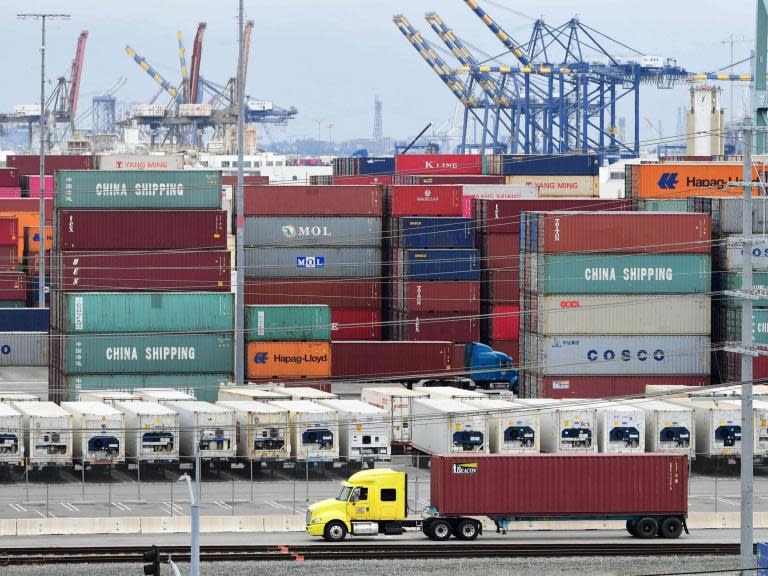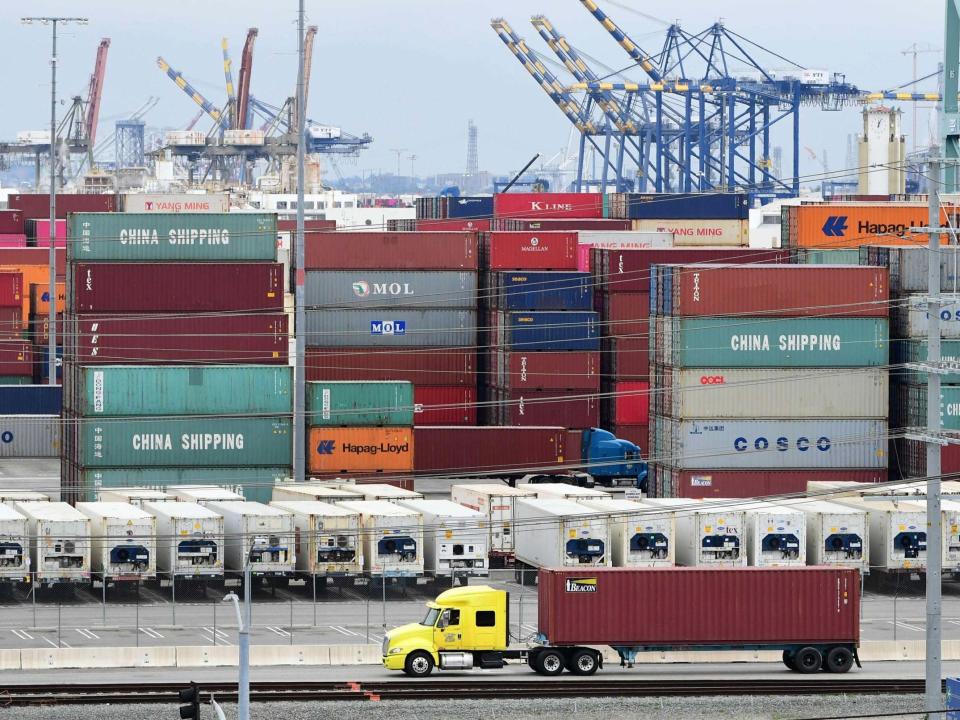China hiking tariffs on US but cutting them for other countries amid trade war with Trump, analysts say
China may have raised trade tariffs on US exports during its recent trade war with the Trump administration, but it has been quietly lowering tariffs for other countries, according to analysis by a group of leading economists.
Beijing has cut tariffs on competing products from other nations it trades with to an average of 6.7 per cent since the start of last year, according to the Peterson Institute for International Economics.
This compares to a 20.7 per cent average tariff rate on American products over the same period, the US-based group found its latest report.
The institute said the US had enjoyed a “level playing field” with other countries as recently as the start of 2018, but the escalation of the Washington-Beijing trade dispute over the past 12 months had changed the picture.
“While Trump shows other countries nothing but his tariff stick, China has been offering carrots,” said PIIE fellow Chad Bown. “China has begun rolling out the red carpet for the rest of the world. Everyone else is enjoying much improved access to China’s 1.4 billion consumers.”
Mr Bown said Americans were “likely suffering more than President Trump thinks” as a result of administration’s trade war. “Trump’s provocations and China’s two-pronged response mean American companies and workers now are at a considerable cost disadvantage relative to both Chinese firms and firms in third countries.”
The latest Labor Department figures showed job growth in manufacturing and construction slowed considerably in May, one of the clearest signs that Mr Trump’s tariffs are having a negative impact on blue-collar sectors.
The US slapped 25 per cent tariffs on $250bn (£200bn) worth of Chinese imports last April. China counterpunched by targeting $110bn (£85bn) in hiked tariffs on US products later in 2018.
.@RepWexton mentions @ChadBown's recent research on how China is lowering tariffs on everyone except the US. Dr. Bergsten explains how the average tariff from China against the US is 20% while ~against the rest of the world it's ~6%. Read the report here: https://t.co/QEEURKs4k6
— Peterson Institute (@PIIE)
Until last month, it appeared that the two countries were edging slowly but steadily towards ending the trade war and forging new economic deal. But then the US accused China of reneging on commitments it had made in earlier rounds of talks.
Negotiations stopped, and the Trump administration rolled out plans to tax another $300bn (£235bn) in Chinese imports, extending the tariffs to everything China ships to the US.
Beijing threatened retaliation after Trump blacklisted Chinese telecom giant Huawei. China’s deputy foreign minister accused the US administration of “naked economic terrorism”.
The threat of an escalation in the dispute has rocked financial markets and clouded prospects for the global economy.
Mr Trump and Chinese president Xi Jinping are set meet at the G20 summit in Japan later in June. The US president claimed negotiations to end a trade war would restart ahead of the summit, ending the six-week hiatus since talks broke down in early May.
On Wednesday, US trade representative Robert Lighthizer said he planned to speak with the top Chinese negotiator by phone over the next couple of days.
Additional reporting by agencies

 Yahoo News
Yahoo News 

